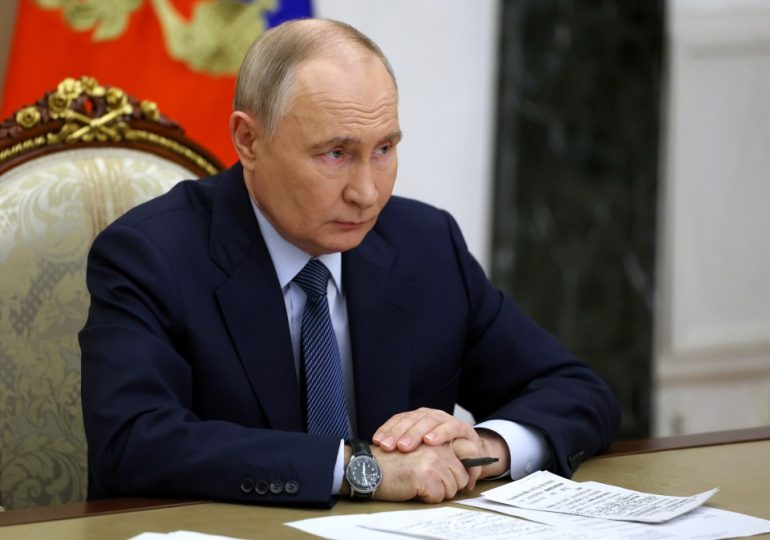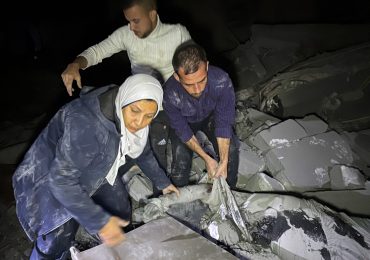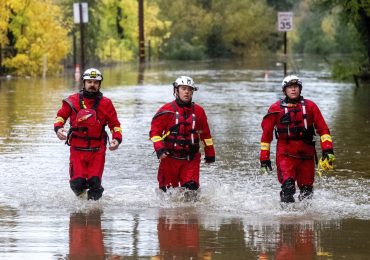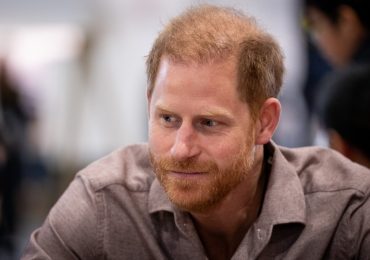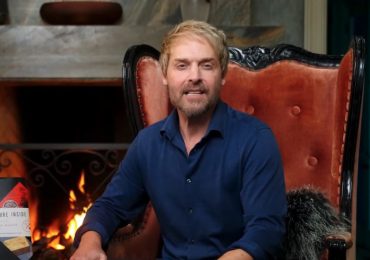A FORMER Nato chief yesterday admitted the world was facing a “dangerous moment” — as military chiefs war-gamed what move Russian tyrant Vladimir Putin may make next.
Colonel Hamish de Bretton-Gordon, a decorated British Army commander, urged the West to “hold its nerve” — and argued the rogue president was peddling nuclear rhetoric because “he’s in trouble”.
APDecorated former Nato chief Colonel Hamish de Bretton-Gordon, says Putin knows he’s in trouble[/caption]
EPAA still image shows a Russian T90M tank firing towards Ukrainian positions, at an undisclosed location in Russia[/caption]
Mr de Bretton-Gordon told The Sun on Sunday: ‘Nuclear Armageddon is off the table’
He said Putin now had limited options after a week of escalation in which a powerful Oreshnik intermediate range ballistic missile was fired at Dnipro in eastern Ukraine.
Ukrainian commanders, however, broke ranks to insist World War Three had started and Lieutenant General Sir Rob Magowan, Deputy Chief of the Defence Staff, told MPs: “If the British Army was asked to fight tonight, it would fight tonight.”
But Mr de Bretton-Gordon told The Sun on Sunday: “Nuclear Armageddon is off the table. That’s not going to happen. The hypersonic missile that was fired on Ukraine this week is still a test missile.
“And there’s no way Putin can fire a tactical nuclear missile either. These are Iskander missiles with a range of 500km.
“Now Ukraine has UK-made Storm Shadow missiles and US ATACMSs, they can take them out.
“I don’t think Nato would stand by and allow Putin to fire a nuclear missile, but that’s the thing vexing Western leaders at the moment.
“They know they can’t make a mistake on this.”
All eyes are on Putin to see what he does next.
He has an arsenal of intercontinental ballistic missiles — capable of carrying nuclear warheads — at his disposal.
He could use short-range nukes to target the battlefield in Ukraine and Nato countries such as Poland.
His most terrifying option is the 65ft Poseidon — an underwater nuke with a 10,000km range and powerful enough to create a 1,500ft wave of radioactive seawater that could swamp Britain.
Even so, Mr de Bretton-Gordon, a chemical weapons expert, urged the West to stand firm.
He said: “Putin is in a difficult position.
“The fact he’s being so bellicose is because he knows he’s in trouble.
“The 50,000 Russian and North Korean troops in Kursk are sitting ducks. They are in assembly areas and in range of the Storm Shadow and ATACMS missiles.
“The rhetoric from Moscow has gone up in volume but the situation remains the same — whoever holds Kursk at Christmas will have the upper hand in any peace talks.
“Kursk is a hell of a bargaining chip. It’s key to the Russian psyche, hallowed ground for them. It’s where they defeated the Nazis in 1943.
“This is, of course, a dangerous moment. People are petrified. But so long as the West’s resolve remains strong, Putin’s options are limited.
“Grey zone acts of sabotage — deniable and unlikely to be the spark that ignites conflict — will undoubtedly increase in the days ahead. So too will the Cold War nuclear rhetoric, but the Russians are really stretched. They’ve lost hundreds of thousands of soldiers.
“If I was Sir Keir Starmer or Joe Biden I would be saying to Putin, ‘If you do manage to fire a tactical nuclear weapon, the overwhelming conventional response will finish your ‘special military operation’.”
Putin has vowed to use the Oreshnik missile again in “combat conditions” after launching it on Dnipro in response to Ukrainian attacks on Russia with Storm Shadows and long-range ATACMS.
Matthew Savill, military sciences director at the RUSI think-tank, said: “There is stuff Russia does to hurt Ukraine but this was sending a message to us, as Ukraine’s international supporters.
“They were saying, ‘Do you really want to play chicken with us, when we have a lot of weapons like this?’.
“They were specifically messaging Europe given our own weaknesses in missile defence and shortages of intermediate range missiles.”
He added that sabotage was another concern.
Russia is suspected of instigating two attempts this month to put explosives on cargo planes bound for North America.
One caught fire at a courier hub in Germany and the other ignited in a warehouse in Birmingham.
Putin has also lowered Russia’s doctrine on the use of nukes to say an attack from a non-nuclear state, if backed by a nuclear power, will be treated as a joint assault.
He has repeatedly laid out nuclear red lines since invading Ukraine, each of which the West has crossed.
Global leaders must decide if they are prepared to gamble again.
Polish PM Donald Tusk warned: “The threat is serious and real when it comes to global conflict.”
SESU/UNPIXSA burning building in Dnipro after a missile strike[/caption]
Russia fires a series of ICBMs at targets in Dnipro
Brits back Zel troops
PRIME Minister Sir Keir Starmer must stand by Ukraine even if President-elect Donald Trump waters down US support, a poll says.
Brits want to see Vladimir Putin’s Russia beaten and do not want the UK to back a peace deal that is bad for Volodymyr Zelensky’s nation.
It comes amid fears Trump will pressure Ukraine to cede territory.
The poll shows 69 per cent of Brits believe it is important to the UK that Ukraine defeats Putin’s invasion.
Only nine per cent say it is not.
Some 41 per cent fear a Trump- negotiated deal would favour Russia.
Just 13 per cent think Ukraine would benefit more, said the poll of 2,000 adults by think-tank More in Common.
Most want the UK to back Ukraine until it has regained the territory it had when the war began.
Almost half say Ukraine should rule on the use of weapons we provide.
Luke Tryl, of More in Common, said: “Britons think beating Putin matters.
They’re also clear that Keir Starmer should not back a US-negotiated peace deal that’s bad for Ukraine.”

